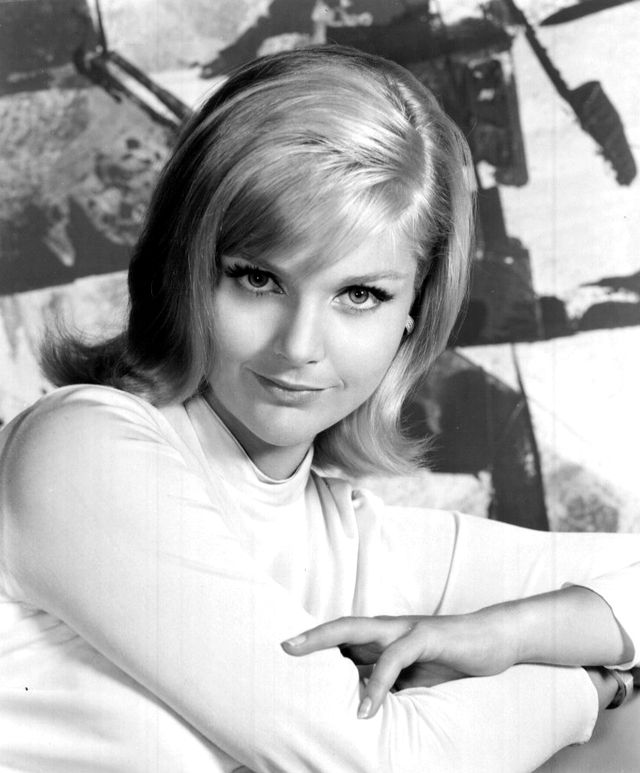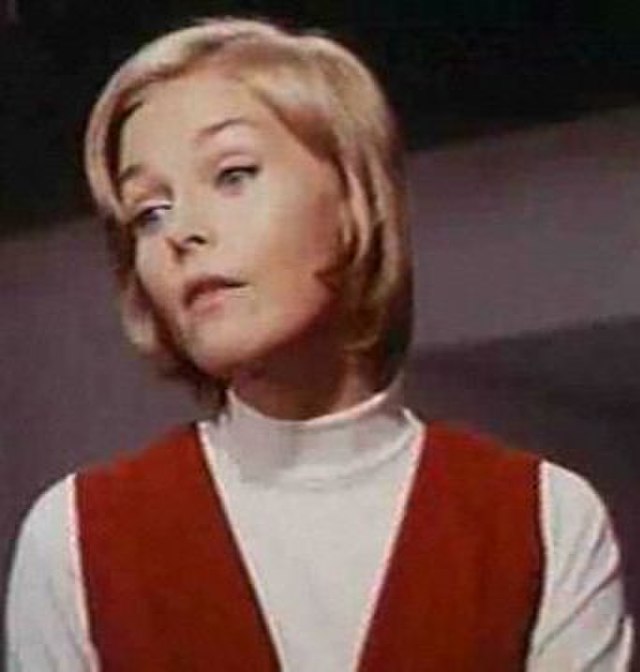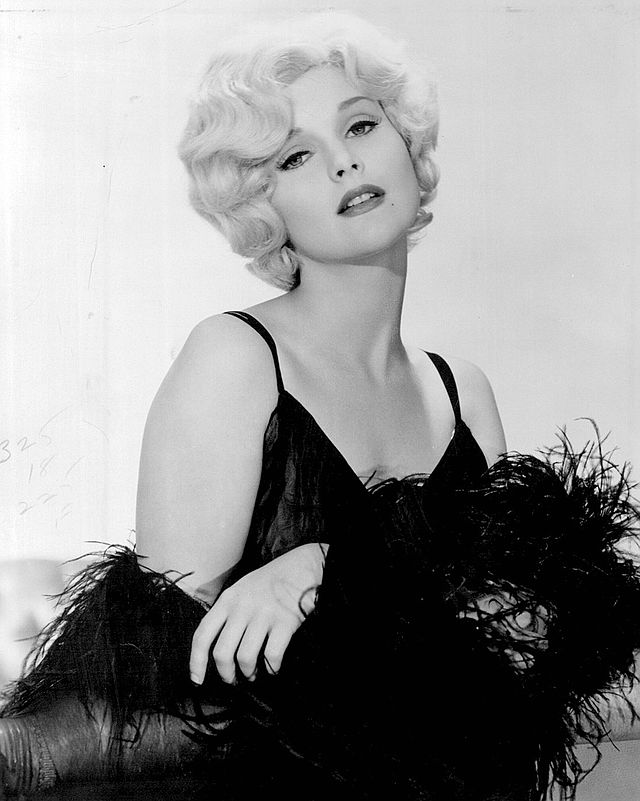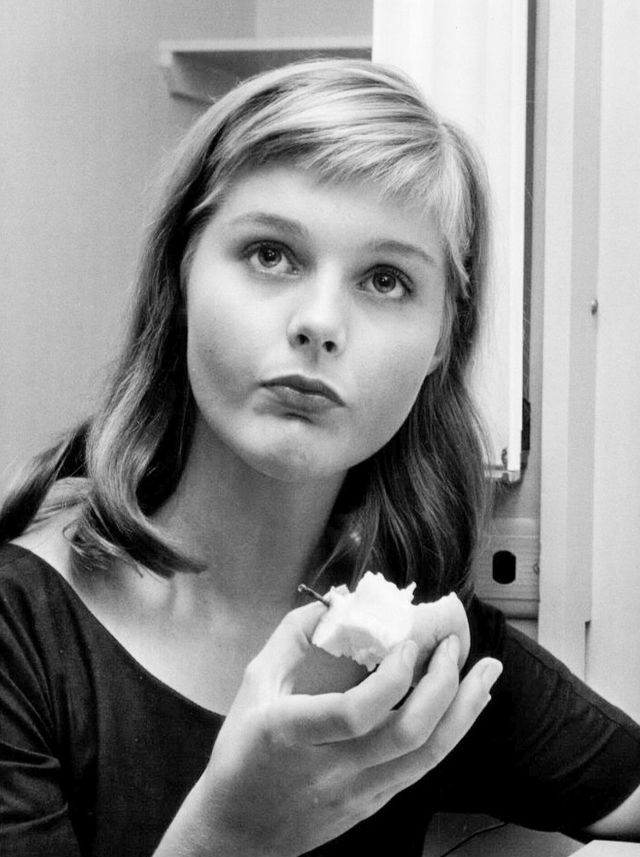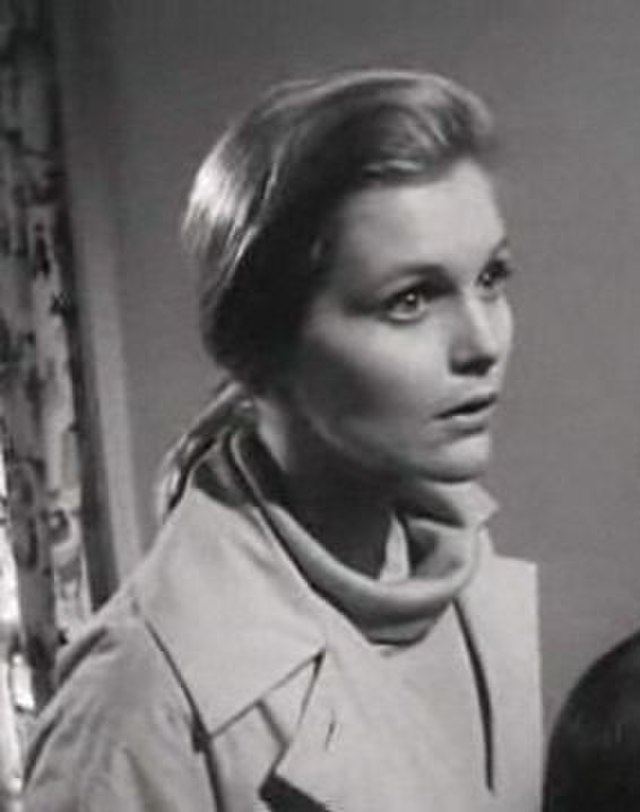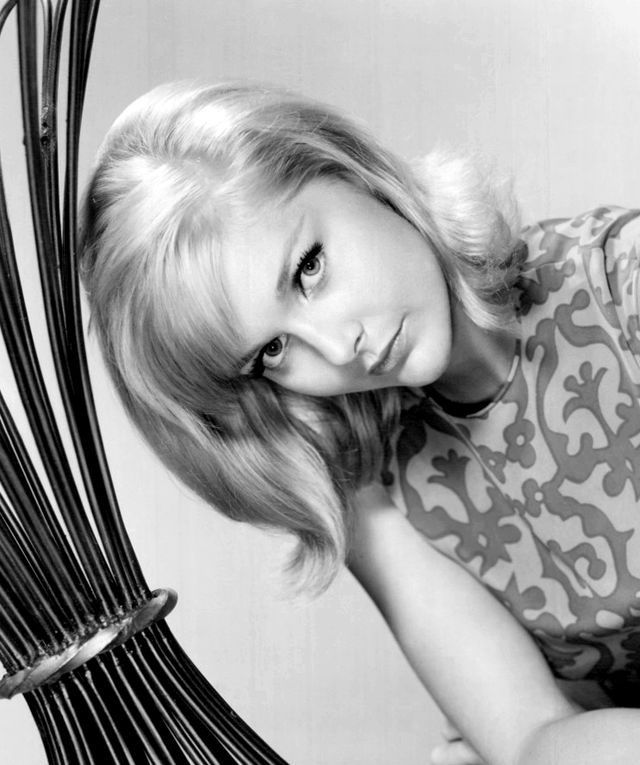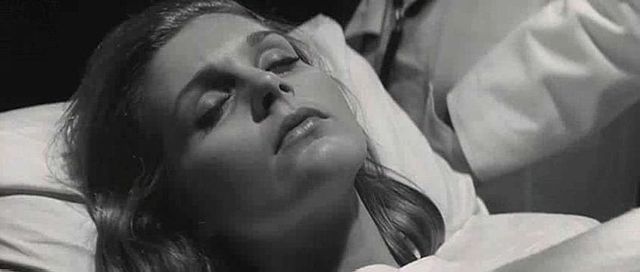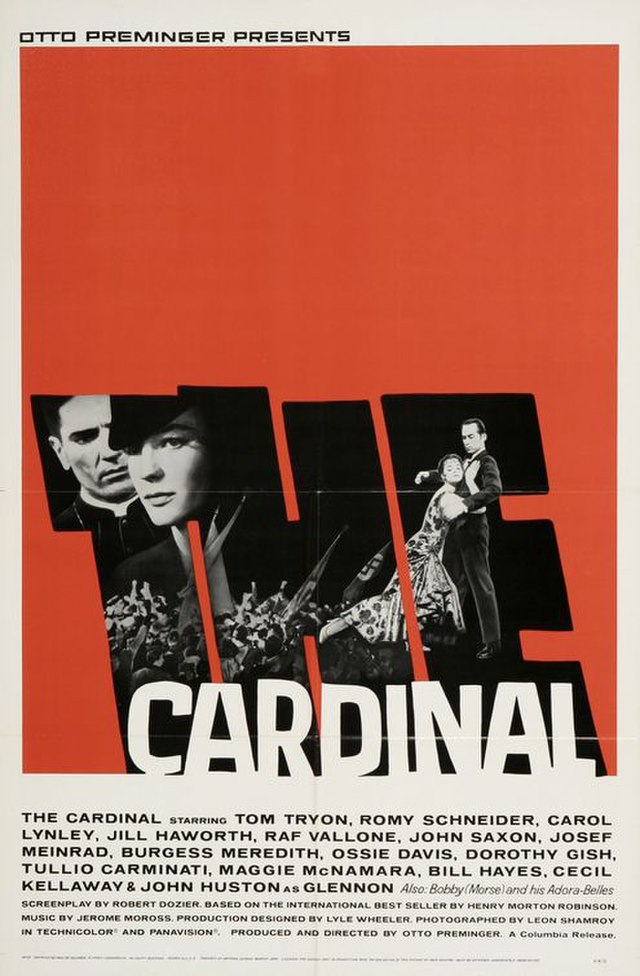Carol Lynley
back| Full Name | Carole Ann Jones |
| Stage Name | Carol Lynley |
| Born | February 13, 1942 |
| Birthplace | Manhattan, New York City, USA |
| Died | September 3, 2019 |
| Buried | Cremated, ashes given to family or friend |
| Married to | Michael Selsman (m. 1960–1964) |
| Children | One daughter, Jill Selsman |
| Notable films | The Poseidon Adventure (1972) - Blue Denim (1959) - Bunny Lake is Missing (1965) - Return to Peyton Place (1961) - The Cardinal (1963) |
Carol Lynley
The Hollywood Ingénue
Carol Lynley (1942–2019) was an American actress and former child model, known for her beauty and emotionally nuanced performances.
She gained recognition in the late 1950s with her breakout role in Blue Denim (1959), earning a Golden Globe nomination.
While her career slowed in the 1970s, she remained a beloved figure in classic Hollywood. Lynley had one daughter, Jill, and was briefly married to publicist Michael Selsman. She passed away from a heart attack at 77, leaving a legacy as a versatile and enduring actress in film history.
Related
Carol Lynley (1942 – 2019)
Biography and Movie Career
Carol Lynley was born Carole Ann Jones on February 13, 1942, in Manhattan, New York City. Raised by her single mother, Frances, after her parents' divorce, Carol began her career at a young age. By the time she was a child, her striking beauty led her into modeling, and she became a popular face in magazines, especially for teen-oriented fashion. She gained considerable fame under the moniker "Carolyn Lee" before changing her name to Carol Lynley when she began acting, due to a conflict with another actress using a similar name.
Her early exposure to the entertainment industry came through modeling and television appearances, which later opened doors to more significant roles in film. Carol was a natural performer and was soon recognized as a rising star.
Path to Success: Hollywood Stardom
Carol Lynley's big break came in the late 1950s when she was cast in Blue Denim (1959), a controversial film about teenage pregnancy and abortion. The movie, adapted from the Broadway play of the same name, helped establish her as a serious actress. Her portrayal of the conflicted young girl facing difficult choices resonated with audiences, and she earned a Golden Globe nomination for "Most Promising Newcomer."
Following this breakthrough, Carol was cast in a string of notable films. She became particularly well-known for her roles in psychological thrillers and dramas. One of her most famous roles was in Bunny Lake Is Missing (1965), where she played a mother whose child disappears, leading to a tense and mysterious investigation. This role cemented her as an actress skilled in portraying emotionally charged characters.
Another major milestone in her career was The Poseidon Adventure (1972), a disaster film that became a massive hit. Carol played the role of Nonnie Parry, a singer aboard a doomed luxury liner. The movie's huge success helped solidify her place in Hollywood and introduced her to a new generation of fans.
Personal Life and Relationships
Carol Lynley married publicist Michael Selsman in 1960, when she was just 18 years old. The marriage was short-lived, and they divorced in 1964. They had one daughter together, Jill Selsman, who went on to become a filmmaker and writer.
While Carol's marriage to Selsman ended early, she was romantically linked to several high-profile men during her career, including actor David Frost. However, she never remarried after her divorce. Her focus remained largely on her acting career and raising her daughter.
Passions and Personality
Beyond acting, Carol had a deep love for the arts and frequently spoke about her interest in classical music and literature. She was particularly drawn to exploring complex, often troubled characters in her acting roles. Carol’s performances often conveyed a mixture of vulnerability and strength, which resonated with audiences.
She was also known for being somewhat reclusive later in life, preferring to live away from the spotlight, though she did participate in fan conventions and interviews that reminisced about her career. Friends and colleagues described her as an enigmatic figure, but one who had a genuine passion for her craft.
Later Career and Decline
As Hollywood changed in the 1970s and 1980s, Carol Lynley's career slowed down. Though she continued to act sporadically, most of her significant roles were behind her. She transitioned to smaller roles on television and made guest appearances in shows like Fantasy Island and The Love Boat. Though she never regained the level of stardom she enjoyed earlier, she remained a beloved figure to fans of classic cinema.
During the later years of her career, she struggled with the changing dynamics of Hollywood and the challenge of finding meaningful roles as she aged. Despite this, she maintained her dignity and remained proud of the body of work she had created.
Death and Legacy
On September 3, 2019, Carol Lynley passed away at the age of 77 in her Pacific Palisades, California, home. The cause of death was later confirmed to be a heart attack. While she had largely retreated from public life in her later years, her death brought an outpouring of tributes from fans and colleagues alike, who remembered her for her beauty, grace, and memorable performances.
Carol Lynley's career spanned over five decades, and while she may not have become a superstar by modern Hollywood standards, her performances left a lasting mark on the industry. Particularly remembered for her roles in Blue Denim and The Poseidon Adventure, Carol embodied a mix of innocence and intensity that made her stand out in an era full of glamorous actresses.
Though her life had its share of struggles, including the early divorce and the challenges of finding significant roles later in her career, Carol Lynley will always be remembered as a Hollywood starlet who captivated audiences with her haunting beauty and compelling performances.
Legacy and Reflection
Carol Lynley's legacy is that of a performer who had the ability to captivate and intrigue audiences with her emotional depth and versatility. Though she had times when the industry may have overlooked her, her fans never did. She remains a symbol of a particular era in Hollywood when classic beauty, mystery, and subtle vulnerability were the hallmarks of stardom.
In the words of those who knew her best, Carol was a woman who "lived her life on her own terms" and remained passionate about her craft until the end.
What Happened to Carol Lynley:
Naturalistic Acting Style of Carol Lynley
Carol Lynley's acting style was defined by a unique blend of vulnerability, emotional depth, and subtle intensity, which set her apart from many of her contemporaries. Her performances often displayed an innate sensitivity that allowed her to connect deeply with the characters she portrayed, whether they were fragile young women navigating personal crises or strong-willed figures confronting external pressures.
Naturalistic and Emotionally Driven
Lynley had an unforced, naturalistic quality in her acting that made her performances feel genuine and accessible. She wasn’t an actress who relied heavily on dramatic flourishes or exaggerated expressions; instead, she conveyed emotion through subtle gestures, facial expressions, and her ability to internalize the struggles of her characters. This quality was especially evident in films like Blue Denim (1959), where she played a young girl grappling with the complexities of teenage pregnancy. In this role, her understated approach allowed the audience to sympathize with her character’s quiet anguish without feeling manipulated by melodrama.
Vulnerability and Innocence
One of the hallmarks of Lynley's acting style was her ability to evoke vulnerability, often portraying characters who were in some way exposed or fragile, yet resilient. In Bunny Lake Is Missing (1965), she played a mother whose child mysteriously disappears, and her performance masterfully walked the line between desperation and emotional unraveling. Her portrayal of Ann Lake exuded a certain fragility, but beneath that, there was an undeniable strength as she fought to find her missing child, making the audience feel her growing fear and confusion.
This sense of vulnerability was also present in The Poseidon Adventure (1972), where she portrayed Nonnie Parry, a singer caught in a life-or-death struggle after a shipwreck. Her character, already emotionally fragile from the traumatic events surrounding her brother’s death, carried this emotional baggage into the chaos of survival. Lynley’s portrayal of Nonnie, marked by wide-eyed fear and quiet determination, made her one of the more relatable characters in the ensemble cast. She made audiences root for her, not through heroics, but through her understated humanity.
Versatility and Range
Although Lynley became closely associated with characters who exhibited innocence and vulnerability, she demonstrated significant versatility throughout her career. She wasn’t confined to playing just one type of role. In films like Under the Yum Yum Tree (1963), she showcased a lighter, more comedic side, bringing charm and warmth to her character. The light-hearted romance allowed her to reveal a playfulness that contrasted with her more serious roles.
In thrillers and psychological dramas, she effectively tapped into darker emotions, often portraying characters on the edge of psychological breakdown. In Once You Kiss a Stranger (1969), for instance, she played a femme fatale type, plotting a murder in exchange for another. This role demonstrated her ability to move beyond the "girl-next-door" archetype and inhabit more morally complex characters, proving she could convey danger and allure just as convincingly as she could innocence.
Physical and Expressive Acting
Carol Lynley’s beauty, often likened to that of classic Hollywood starlets, added an ethereal quality to her characters. Her delicate features, large, expressive eyes, and graceful presence on screen allowed her to project emotion even in scenes with minimal dialogue. She had a way of using her physicality—whether it was a nervous glance, a slight shift in posture, or the way she carried herself in moments of tension—that added layers of complexity to her performances.
Her acting was often understated, but that didn’t mean she shied away from intense moments. When the scene required it, Lynley could bring a raw, powerful intensity, as seen in The Cardinal (1963), where she played a tragic figure whose actions carry deep emotional weight. Her character’s difficult arc, from innocence to despair, was executed with both physical and emotional clarity, allowing her to convey the internal conflict without needing to overstate it.
Emotional Honesty
What truly stood out in Lynley’s performances was her emotional honesty. She had the ability to make her characters feel authentic, whether they were heroines in distress or women dealing with everyday struggles. Her capacity to internalize complex emotions and project them without resorting to overacting made her particularly effective in roles that required emotional depth. She brought an empathetic quality to her characters, making them feel fully realized, rather than caricatures of fragile women or damsels in distress.
Her performance in Bunny Lake Is Missing is a good example of this. As her character’s grip on reality starts to waver, Lynley didn’t rely on overt breakdowns or hysteria to communicate the depth of her fear. Instead, her performance was nuanced, using small moments of tension and quiet despair to draw viewers in. The emotional journey of her character was made more profound because of her restraint, allowing the audience to feel the growing psychological unease with her.
Resilience Beneath the Surface
Though Lynley often played characters who appeared vulnerable or fragile, there was always a sense of resilience underlying her performances. Her characters often faced overwhelming odds, but instead of playing into helplessness, Lynley imbued them with a quiet strength. In The Poseidon Adventure, for example, even as her character Nonnie is emotionally shaken and terrified, she doesn't give up. Her portrayal made it clear that while Nonnie was scared, she had an inner resolve to survive, and this combination of fear and determination made her character compelling.
Understated Glamour
Unlike some of her contemporaries who played up the glamour of Hollywood stardom, Carol Lynley maintained an understated elegance in both her roles and her off-screen persona. This translated into her acting as well. Her beauty was undeniable, but she rarely relied on it to carry a performance. Instead, she focused on emotional authenticity, using her looks to enhance the character rather than define it. Her approach often allowed her to play more grounded, relatable characters.
Carol Lynley’s acting style was defined by her emotional authenticity, vulnerability, and versatility. She was adept at portraying women who were fragile but resilient, who had both strength and vulnerability. She used subtlety to great effect, often conveying more with a glance or a small gesture than with words. Whether playing an innocent girl, a mother in distress, or a femme fatale, Lynley brought a quiet intensity to her roles that made her performances memorable. Her beauty and grace may have initially caught the attention of Hollywood, but it was her emotional depth and naturalistic style that made her an enduring figure in the world of cinema.
Quotes by Carol Lynley:
· On her acting career:
"Acting is not about being someone different. It's finding the similarity in what is apparently different, then finding myself in there."
This quote reflects Lynley's approach to acting, focusing on the internal process of connecting with characters and finding authenticity in each role she played.
· On fame and Hollywood:
"I wasn’t that ambitious. I enjoyed the work, but I was never desperate for stardom."
Carol often acknowledged that she wasn’t caught up in the glamour or competition of Hollywood fame. She saw acting as a craft she loved, but stardom wasn’t her main goal.
· On her role in The Poseidon Adventure (1972):
"It’s funny, I don’t really sing in the movie. I lip-synched all the songs! But people still ask me if I’m a singer."
Lynley humorously commented on the fact that many people associated her with being a singer after her portrayal of Nonnie Parry in The Poseidon Adventure, though her singing voice was actually dubbed in the film.
· On personal growth and life choices:
"I've made my share of mistakes, but I've never been afraid to be myself."
This quote shows her self-awareness and acceptance of her life journey, reflecting an attitude of resilience and authenticity, even through challenging times.
· On aging in Hollywood:
"Aging isn’t for sissies, but I’ve made peace with it. Hollywood has a shelf life for actresses, and I was prepared for that."
Carol was realistic about the challenges actresses faced as they aged, especially in Hollywood. She spoke about accepting her career’s evolution over time without bitterness.
· On her love for acting:
"For me, acting was never about the money or the fame. It was always about the work, and the joy of becoming someone else for a little while."
This quote highlights Lynley’s genuine passion for acting and her focus on the artistic process over external rewards.
What Others Said about Her:
On Her Acting Talent:
- Otto Preminger (Director of The Cardinal and Bunny Lake Is Missing):
"Carol had this incredible ability to capture both innocence and complexity at the same time. She was able to show so much emotional depth with a single glance."
Preminger, who directed Lynley in two of her most significant roles, admired her ability to convey vulnerability and strength in nuanced ways, especially in psychological thrillers like Bunny Lake Is Missing.
- Roddy McDowall (Actor and Close Friend):
"Carol was always radiant, always a presence. Whether on screen or in person, she had this light about her. I think that’s what people really remember—this inner light she carried with her."
McDowall, who was a close friend of Lynley, often spoke of her charm and her strong presence both on and off screen, attributing part of her lasting appeal to her luminous personality.
On Her Beauty and Screen Presence:
- Gene Hackman (Co-star in The Poseidon Adventure):
"There’s something timeless about Carol. Her beauty, yes, but more than that, she had a kind of grace and dignity that translated on screen. She made every role feel human and relatable."
Hackman, who starred alongside her in The Poseidon Adventure, recognized not only her beauty but her ability to imbue her characters with authenticity and emotional depth, even in larger ensemble films.
- Richard Chamberlain (Co-star in The Last Sunset):
"She had this quiet intensity. Carol wasn’t loud or flamboyant, but when the camera was on her, you couldn’t look away. She drew you in."
Chamberlain, who starred with Lynley in The Last Sunset (1961), appreciated her understated acting style, noting her ability to captivate an audience without resorting to over-the-top theatrics.
On Her Professionalism and Approach to Work:
- Michael Selsman (Publicist and Former Husband):
"Carol was always serious about her work, but she never took herself too seriously. She knew how to have fun and enjoyed the creative process. I think that’s why people loved working with her."
As her former husband, Selsman had insight into her work ethic and her balance between dedication to her craft and maintaining a grounded, playful spirit.
- Shelley Winters (Actress and Co-star in The Poseidon Adventure):
"She was absolutely professional, always prepared, always kind. Carol had this quiet confidence about her that made you respect her instantly."
Winters, another seasoned Hollywood actress, appreciated Lynley’s professionalism on set, noting her preparedness and kindness toward her fellow actors.
On Her Personal Life and Friendship:
- David Frost (British Journalist and Former Partner):
"Carol was a fascinating woman, full of contradictions. She could be both fragile and strong, both playful and deeply serious. She lived life on her own terms, and I think that’s something rare."
Frost, who had a romantic relationship with Lynley, often spoke about the complexity of her personality and her independent nature, admiring her ability to navigate life with a mix of strength and vulnerability.
- Robert Wagner (Actor and Close Friend):
"She had an elegance about her that wasn’t just about how she looked—it was how she carried herself. Carol was always generous with her time and spirit. A true friend."
Wagner, who had known Lynley for many years, frequently praised her elegance and generosity, noting how she maintained her grace both in professional settings and personal relationships.
Critics and Media:
- The New York Times (Review of Bunny Lake Is Missing):
"Carol Lynley’s performance as the distraught mother is understated but deeply affecting. She captures the emotional disarray of her character without ever overplaying her hand, making the unraveling mystery all the more haunting."
Critics often praised Lynley for her ability to balance emotional intensity with restraint, a skill that was highlighted in her psychological thriller roles.
Fans and Pop Culture Enthusiasts:
- Film Historian David Del Valle:
"Carol Lynley was a quintessential actress of the 1960s and ’70s. She embodied that era’s evolving image of femininity—innocent yet self-possessed. Fans of classic cinema appreciate her not just for her beauty, but for her ability to handle complex roles with subtlety and grace."
As a historian and critic, Del Valle recognized Lynley’s lasting appeal in classic Hollywood, particularly in the genres of thriller, drama, and disaster films.
Awards and Recognition:
Golden Globe Awards:
1959: Nominated for Most Promising Newcomer – Female for Blue Denim
Carol Lynley's role in Blue Denim (1959) was one of her breakout performances, where she played a young girl dealing with the complexities of teenage pregnancy and abortion. Her sensitive portrayal earned her a Golden Globe nomination for "Most Promising Newcomer – Female," a category that highlighted up-and-coming talent in Hollywood.
Theatre World Award:
1956: Theatre World Award for her role in The Potting Shed
Before transitioning fully into films, Carol Lynley made a notable impression on stage. Her role in Graham Greene’s The Potting Shed on Broadway earned her the prestigious Theatre World Award, which is given to promising new actors for outstanding debut performances on or off-Broadway. This was one of the early indications of her promising talent as an actress.
David di Donatello Award:
1965: Nominee for Best Foreign Actress for Bunny Lake Is Missing
For her gripping performance in Bunny Lake Is Missing (1965), Lynley was nominated for the David di Donatello Award, Italy's equivalent to the Academy Awards, in the category of Best Foreign Actress. Her role as a distressed mother searching for her missing child garnered international recognition and praise.
Additional Recognition and Legacy
While Lynley didn’t receive a vast number of awards during her career, her performances were frequently noted by critics for their emotional honesty and depth, particularly in films like Blue Denim and Bunny Lake Is Missing. She became a beloved figure in popular culture due to her starring role in The Poseidon Adventure (1972), which solidified her place as a cult favorite in the disaster film genre.
Movies Starring Carol Lynley:
1958: The Light in the Forest
Synopsis: Carol Lynley played a supporting role in this Disney adventure about a young boy raised by Native Americans who must return to white society.
1959: Blue Denim
Synopsis: A drama about teenage pregnancy and abortion, where Carol portrayed a young girl facing difficult choices with her boyfriend. This film earned her a Golden Globe nomination.
1959: Holiday for Lovers
Synopsis: A light-hearted family comedy where a father takes his family to South America for a vacation, and Carol plays the daughter who experiences romantic entanglements along the way.
1960: Hound-Dog Man
Synopsis: Set in 1912, this film follows a young boy who dreams of becoming a hound dog hunter, and Carol has a supporting role in this coming-of-age story.
1961: Return to Peyton Place
Synopsis: A sequel to Peyton Place, this drama follows the inhabitants of a small New England town. Carol plays the role of Allison MacKenzie, an aspiring novelist who writes about the town's dark secrets.
1961: The Last Sunset
Synopsis: A western film starring Kirk Douglas and Rock Hudson, where Carol played Missy, a young girl caught up in family drama on a cattle drive.
1962: Under the Yum Yum Tree
Synopsis: A romantic comedy where Carol plays a woman involved in a love triangle with her boyfriend and a wily landlord.
1963: The Stripper
Synopsis: In this drama, Carol had a supporting role in the story of a former burlesque queen who struggles to make a life in small-town America.
1963: The Cardinal
Synopsis: Directed by Otto Preminger, this historical drama covers the life of a Catholic priest. Carol plays the sister of the main character, whose tragic fate plays a key role in the story.
1965: Bunny Lake Is Missing
Synopsis: A psychological thriller where Carol plays Ann Lake, a mother whose child goes missing, and her frantic search turns increasingly surreal as others doubt her story.
1967: Danger Route
Synopsis: A British spy thriller in which Carol plays Marita, a mysterious woman involved in a deadly espionage plot.
1969: Once You Kiss a Stranger
Synopsis: A thriller where Carol plays Diana, a woman who makes a sinister proposal to a golf pro: she’ll kill his rival if he kills someone for her.
1970: The Shuttered Room
Synopsis: A horror-thriller where Carol plays Susannah, a woman returning to her family's old mill only to discover a dark secret lurking within.
1971: The Night Stalker
Synopsis: Carol appeared in this made-for-TV horror film as Gail Foster, a character in a story about a reporter investigating mysterious murders in Las Vegas.
1972: The Poseidon Adventure
Synopsis: One of Carol's most famous roles, she played Nonnie Parry, a singer aboard a doomed luxury liner. The ship capsizes in a massive tidal wave, and survivors must fight to escape the wreck.
1973: The Four Deuces
Synopsis: A crime comedy set in the 1920s, where Carol plays a woman involved in a rivalry between two gangsters who vie for control of the city.
1975: The Cat and the Canary
Synopsis: A horror comedy film where Carol plays Annabelle West, one of the potential heirs to a vast fortune, but someone is trying to kill her before she can inherit.
1977: Bad Georgia Road
Synopsis: A comedy-action film where Carol plays a woman who inherits a moonshine operation in the South, and chaos ensues as she tries to manage it.
1980: The Shape of Things to Come
Synopsis: A low-budget sci-fi film set in the future where Carol plays Nikki, who joins a crew trying to stop a madman from taking over the planet.
1983: Freelance
Synopsis: A British crime film where Carol portrays a woman involved in an intricate plot involving corruption, murder, and betrayal.
1991: Spirit of the Eagle
Synopsis: A wilderness adventure set in the 1800s where Carol plays a supporting role as a frontier woman involved in a young boy’s quest to save an endangered eagle.
1992: Blackout
Synopsis: A thriller where Carol plays one of the key characters in a plot about people caught in a dangerous situation during a power blackout.
1995: Drowning on Dry Land
Synopsis: A low-budget drama where Carol plays a psychologist helping a man grappling with deep psychological issues.
1999: A Light in the Forest
Synopsis: Carol appeared in this family adventure film about a boy who discovers magical creatures in the woods.
2006: Vic
Synopsis: This short film directed by Sage Stallone starred Carol in a supporting role about a washed-up actor trying to reclaim his former glory.

